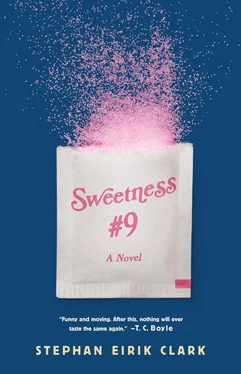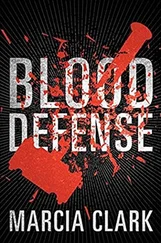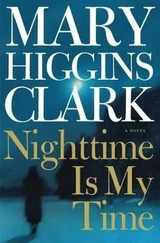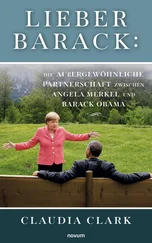“I know,” Beekley was saying, and his hair stood so tall this evening that he reminded me of a troll doll. “If he sells to Better Health and Flavorings, he’ll donate his millions to Oklahoma State and demand they put his name on a new football stadium. Or, no, he’ll buy a large tract of land in Kansas and build a huge ark made out of plastic. With his remaining money, he’ll fill it with two of every animal known to man — or better yet, only those indigenous to Germany.”
“I think he’ll turn FlavAmerica into an employee-run cooperative,” Koba answered. “He’s got no family of his own, so why wouldn’t he leave it to us? He clearly has no need or fondness for money. The man lives like a monk.”
Beekley appeared deeply aggrieved by this, even though his own politics were aligned with such thinking. “Ridiculous,” he said. “The scenarios are supposed to be ridiculous. ”
“Well, I’m sorry,” Koba said. “I don’t drink ‘ironic’ beers and understand your whole theory of ‘the ridiculous.’”
“What do you mean?” Beekley set down his bottle of Miller High Life. “You’re being ridiculous right now.”
“I’ll tell you what’ll happen,” I broke in. “If Ernst cashes out, he’ll give his money away, you’re right about that, but it won’t be to you or me or anyone else in America, save for a few dollars to Eliza.” I had their attention now, but here the doors to the banquet room opened, turning heads and sending the crowd into motion. I grabbed my drink and led the way. “The money will go to Germany,” I said, before reminding my co-workers that our leader had traveled there with Eliza the previous summer and visited his childhood home of Dresden for the first time since the war. When he returned, he spoke at length about the church in which he’d been baptized, a grand baroque structure that had once dominated Dresden’s skyline but now lay in ruins as both a reminder of the folly of war and a testament to the lack of development in the Communist East.
“There’s been talk in the German-American community of rebuilding it.” I sat down at a table that had a plain white card sticking up from a vase of flowers: FlavAmerica, it read, above the Society’s logo. “That’s where his money will go, to Dresden. You think he lacks motive?” They looked with me to the doors, through which Ernst was now walking with Eliza. “That man didn’t just serve during the war,” I said. “He served Hitler his dinner.”
IT WAS A STORY EVERY FLAVORIST knew, if not from casual conversation, then one of the many mentions of it in the Society newsletter. “The Hitler Detail,” Ernst called it, a story that began in 1940, just weeks after Paris had fallen like a drunk woman in the street.* It was then that Hitler, still manic from his brief visit to the occupied French capital, left Paris for a whistle-stop tour of World War I battle sites — more a tourist at this stage of the war than the commander of the army that had already swallowed half of Europe.
Hitler’s train eventually brought him into the Frankfurt Rhine-Main area, where, in the waning years of the nineteenth century, Pavel Pabst (not to be confused with his piano-playing contemporary, the native of Königsberg who taught at the Moscow Conservatory) had unlocked the secrets of the conifer tree and produced the world’s first chemically synthesized dose of vanillin. Hitler insisted that they stop at his Wiesbaden lab to pay their respects, and it didn’t matter that the consensus ran against this (a tour of a flavor production facility during the war!); Hitler could not be denied.
Ernst Eberhardt, then just a trainee of not quite twenty years, saw nothing strange in Hitler’s visit, but then it hardly seemed to him that Germany was at war at all. He lived in one of the country’s most renowned spa towns, and as he whiled away the hours on the weekend at a sidewalk café, he delighted in the lingering looks he drew from young women. It was no different for his sisters in Köln and Frankfurt, the younger a painter, the elder already a mother. Whenever he visited them, he’d attend art gallery openings or drive off into the country for a picnic.
Hitler entered the laboratory shortly before noon, surrounded by his publisher, Gerhardt Bloch; his photographer, Heinrich Hoffmann; an unknown SS escort; and Lukas Schmidt, the Pabst, Pfaff & Pfeiffer executive who had jumped apoplectic from behind his desk when his secretary told him whose sedan had just parked at the top of the building’s circular drive.
Perhaps it was Ernst’s youthful good looks and stunning blond hair that drew Hitler to him. What is known is that the Führer stopped at his side and looked down at the beaker in his hand.
“And what are you working on?” he asked.
Ernst looked at the beaker and tried to keep his hand from shaking. “Something sweet, mein Führer. For a hard candy.”
He offered it up for inspection, and Hitler dipped his nose into the mouth of the glass tube, nodding as he pulled away from the clear colorless liquid inside.
“Orange,” he said. “It’s orange.”
Ernst smiled and nodded—“Yes, that is right!”—as did the publisher Gerhardt Bloch. Orange! Wonderful! Hitler’s photographer knew a good moment when he saw one. He stepped forward and captured the smiles with a flash, after which the SS officer accompanying them leaned into the Führer’s ear, no doubt to whisper his fears of an attack that would begin with a chemical splash.
Four years would pass before Ernst would see his country’s leader again. By then his favorite cafés had closed, the art galleries had gone dark, and Pabst, Pfaff & Pfeiffer had been shuttered so its scientists could be reassigned throughout the war-time economy.
Ernst was sent to a research facility on the Baltic coast, a little more than a year before the British bombed it in the early morning hours of 18 August 1943. The dormitories housing the scientists were targeted during that raid, killing three of Ernst Eberhardt’s closest friends. He was saved from the explosions and the fires that followed them only because of the schnitzel he’d eaten at dinner. It hadn’t agreed with him, and so he’d awoken in the dark and followed the beam of his flashlight to the outhouse, where in his prolonged discomfort he’d fallen asleep. He awoke on the run to the sound of bombing, so scared that his legs kicked free of his boxer shorts as he stumbled and fell naked toward the line of trees.
The following month, the production of the V-2 rocket was moved underground, taking Ernst with it deep inside a mountain near the village of Niedersachswerfen. It was there that he thought he would sit out the war. But then in February of 1945 he was notified of a second, more important subterranean assignment, this one in Berlin.*
His first two days in the Führerbunker, no one would describe his duties to him. Each time Ernst dared approach someone to ask, he was told to return to his bunk and await further instructions. He saw Hitler only once, in passing, while coming back from the toilet. Pausing at the head of the stairs, Ernst heard his voice growing louder as it moved up from the bunker’s lowest level. Dr. Morell was at Hitler’s side, and though Ernst wasn’t able to stand there long enough to make sense of their whole conversation — a bodyguard led the way and hurried Ernst on with a questioning look — he heard enough to know Hitler was talking about the use and effects of cyanide. How much? How long? How painful?
Hours later, Ernst awoke from a frantic dream and looked for a window, trying to determine the time by the presence of dark or light. But this was a world without a sun or a moon, some fifty feet below-ground, lower even than the corpses. He turned lazily onto one side, hearing the breathing of three other men, and reached to the side of his bed for the flashlight he’d brought with him from Peenemünde. He flicked it on and held it over his wristwatch, seeing the time was not quite three o’clock. He brought the watch up to his ear and listened, first making sure the timepiece was working, then pleased by the sound that it made. He felt reassured by the slow tick-tick, tick-tick of the second hand. It brought to mind the rise-then-fall of a pickaxe, allowing him to see the future as a brick wall, something methodically being chipped away by the present. Tick-tick, tick-tick. Only a tiny hole needed to be cleared; then he could punch through and make his escape.
Читать дальше












